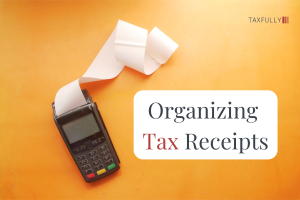Retirement is a significant milestone, decades of hard work. However, transitioning from a regular paycheck to relying on pension income, retirement funds, and savings requires careful financial planning. Here’s a guide to help retirees navigate this new phase of life.
Pension Income:
Pensions provide retirees with a consistent income. It’s essential to understand:
Tax Implications: Pension income is generally taxable. However, some states offer tax breaks for retirees.
Withdrawal Strategies: Determine the best time and amount to start drawing from your pension to maximize benefits.
Types of Pensions:
Defined Benefit Plans: These are traditional pensions where retirees receive a predetermined amount based on their salary history and years of service.
Defined Contribution Plans: In these plans, employees contribute a fixed amount or a percentage of their paychecks to an account intended to fund their retirements. The employer might also contribute a matching amount.
Tax Treatment of Pension Income:
Fully Taxable: If you made no after-tax contributions to your pension, the entire pension amount is generally taxable. This means that every pension payment you receive is fully taxable as ordinary income.
Partially Taxable: If you contributed after-tax dollars to your pension, a portion of your pension might be tax-free. The IRS provides a formula to determine the tax-free part of your pension payment.
State Taxation: While pension income is taxable at the federal level, each state has its own rules regarding the taxation of pension income. Some states exclude all pension income from taxation, while others tax a portion. It’s crucial to check the rules in your specific state.
Considerations for Pension Recipients:
Tax Withholding: You can choose to have federal income tax withheld from your pension payments. If you don’t opt for withholding, you might need to make estimated tax payments.
Lump-Sum Distribution: Some retirees might have the option to take their pension as a lump-sum distribution instead of monthly payments. This can have significant tax implications, and it’s essential to consult with a tax professional before making this decision.
Rollovers: If you receive a pension distribution before you’re 59½, you might be subject to an early withdrawal penalty unless you roll over the amount into an IRA or another retirement plan.
Retirement Funds: 401(k)s, IRAs, and More
Retirement accounts like 401(k)s and IRAs are popular savings vehicles. When tapping into these:
Understand RMDs: Required Minimum Distributions (RMDs) are mandatory withdrawals that start at age 72. Not taking RMDs can result in hefty penalties.
Tax Considerations: Withdrawals from traditional 401(k)s and IRAs are taxable. However, Roth accounts offer tax-free withdrawals.
Potential Tax Pitfalls
Retirees must be wary of potential tax pitfalls:
Social Security Taxation: Depending on your income, a portion of your Social Security benefits might be taxable.
Medicare Premiums: Higher-income retirees might pay more for Medicare Part B and Part D premiums.
Investment Income: Interest, dividends, and capital gains can impact your tax liability.
Financial Planning Tips for Retirees
Diversify Income Streams: Consider annuities, real estate income, or part-time work to diversify income sources.
Reassess Risk Tolerance: As you age, consider adjusting your investment portfolio to reflect a more conservative risk profile.
Stay Updated on Tax Laws: Tax laws change. Regularly consult with a tax professional to ensure you’re optimizing your strategy.
Conclusion
Retirement is a time to enjoy the fruits of your labor. With careful financial planning, retirees can ensure they maximize their income, minimize taxes, and maintain a comfortable lifestyle.





